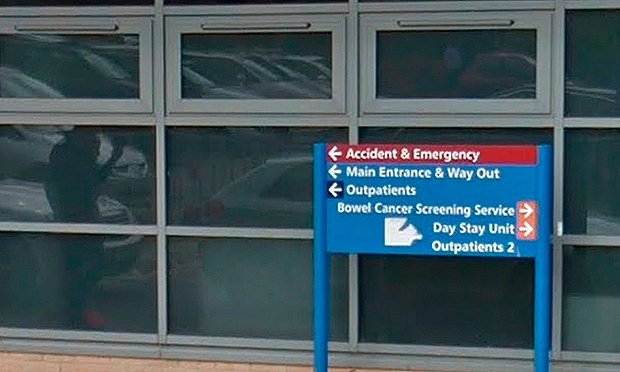Fifteen per cent of mental health patients waited more than 12 hours in A&E in January

A&E sign at Homerton Hospital. Image: Google
Fifteen per cent of people who visited A&E for a mental health-related reason in January had to wait more than 12 hours to be seen.
The figure represents almost 200 people who attended hospitals across north-east London, including the Homerton.
It comes from new data revealed by the East London Foundation Trust (ELFT) and the North-East London Trust revealed (NELFT).
Lorraine Sunduza, ELFT’s chief executive, said the delays were “in part due to the high bed occupancy on mental health wards”.
Since last summer, extra days in a hospital bed for people clinically ready for discharge (CRFD) on acute inpatient wards have increased “substantially”, a report to yesterday’s joint health scrutiny committee for inner north-east London revealed.
In March, there were approximately 70 people ready for discharge, but Sundaza said they remained in hospital because “they are often without a suitable place to go”.
These are “often people with complex social circumstances”, she explained.
“In particular, they’re people who are homeless or who have no recourse to public funds, or who have care needs that require enhanced levels of accommodation-based support.”
The report states: “The high levels of CRFD are resulting in high bed occupancy (routinely over 95%), longer lengths of stay and therefore reduced flow through our acute mental health beds.”
“This is consequently resulting in longer waits for admission and high numbers of admissions ‘out of area’ to private sector beds,” it continues.
Approximately 80 people were relocated to private-sector beds “at any one time during the first part of March” – places that cost the NHS £750 a night.
“This situation, common across London, is desirable neither in terms of care quality and patient experience nor use of financial resources,” said Sundaza.
On 19 March, ELFT “declared internal critical incident status due to sustained high levels of bed occupancy and other system-wide operational and service-level pressures”.
Sundaza briefed the committee on ELFT’s and NELFT’s responses to the incident, which included the roll-out of a 24-hour 111+2 service to “divert demand away from A&E”.
The 111+2 service is the only 24-hour service in London that provides specialised mental health crisis response care.
Hackney Central councillor Ben Hayhurst expressed concern over the service that callers will receive from 111+2.
He asked if users would have to undergo the “same 111 computer algorithm that often puts people off calling”.
Sundaza assured the committee that the 111+2 hub contains “senior and clinically-trained nurses who have direct access to doctors at all times”.
